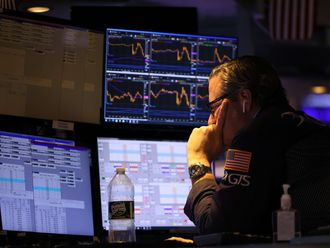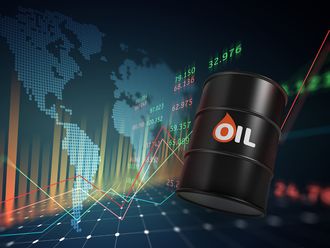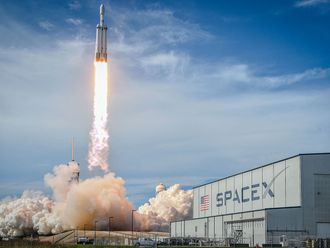Construct the eagle's nest, and the eagle himself will come. This ancient Chinese proverb lobbed by a modern day shipping bureaucrat may sound more imperial than free market, but the Middle Kingdom no longer makes a secret of its ambitions.
Just as Shanghai wants to beat London and New York as a financial centre, replace the dollar with the yuan, so too it wants to upstage the Baltic Dry Index with its own. It's a strategy plotted from every conceivable deck of the shipping trade, industry and market.
Soon after taking control of a container port in Athens for £2.8 billion (Dh15.6 billion), Wei Jiafu, chief executive of Cosco, China's largest state-owned shipping conglomerate, sent jitters throughout Europe, offering to bring ‘Chinese eagles' into impoverished Greece to upgrade their port facilities and tripling the volume of cargo the port can handle.
Silk route raiders
The Chinese, they are coming, across land, sea and gas pipelines. Their ‘New Silk Road strategy', which evoked much romance among geo-political analysts, is fast losing its benign quality.
After the world financial crisis, grabbing opportunity from adversity has become a Chinese way of governance. Through Cosco, Beijing hopes to make discreet strides inroads into Europe. The investment in Athens port is a lynchpin in the strategy to gain access to European markets as the port provides a way into the Black Sea region, central Asia and Russia.
The bane of policy makers is that China is a big shipping country instead of a powerful one. On one hand, it accounts for 30 per cent of the world's shipping trade growth, 70 per cent of the world's iron ore shipping growth and 26 per cent of the throughput of containers.
In 2009, Shanghai Port ranked second in the world with a 25-million-ton throughput, only 800,000 tons less than Singapore.
This apart, the country has the most ambitious and fastest growing ship building programme in the world.
Moreover, after a crippling 2009, the first half of 2010 has been particularly lucrative for Chinese shipping and shipbuilding companies, listed in Shanghai and Hong Kong, most of which have posted earnings.
China Cosco Holdings is expected to post a net profit in first half of the year after making a loss a year ago. China Cosco operates the world's largest bulk cargo fleet and is the seventh container shipping firm globally.
China Shipping Container Lines, the primary container carrier and fifth largest in the world, expects to profit after suffering a loss of half a billion dollars for the first six months last year. It is joined by the China Shipping Development Co, the largest carrier of crude oil in mainland China, whose net profit may have grown by over 50 per cent in the first half of this year.
However, for a long time now, China has had little command over the international shipping trade. Of its total imports and exports, only 30 per cent goods are transported by Chinese fleets.
It lacks core competitiveness when it comes to shipping information, ship brokering, financing and leasing. It also lacks experience in maritime arbitration, insurance and claims. For all these reasons, China does not have sufficient say in global shipping pricing.
Index war
To gain a foothold in the pricing club, the Shanghai Shipping Exchange intends to launch a container-shipping derivatives market by the end of this year. As early as 2003, the Exchange had set up a shipping index futures development team devoted to the development of financial derivatives shipping.
After years, this will finally see the light of day. The newly formed Shanghai Containerised Freight Index (SCFI) will be the first such index in the world and will act as a benchmark for container-shipping futures.
Since February, the weekly SCFI has been tracking spot rates for shipments on 15 routes, including to Europe, the Mediterranean and the US. The data, compiled from 15 shipping lines and 15 freight forwarders, reflects more than 60 per cent of global container-shipping. The plan, however, awaits government approval.
In the Ming dynasty, Admiral Zheng He led an armada of hundreds of vessels on epic voyages to Indonesia, India, Africa and the Persian Gulf. The present Chinese regime is equally meticulous, if less adventurous, in developing new derivative products to give their shipping enterprises a bigger influence in the volatile sea of prices.
The writer is a freelance journalist based in China.












